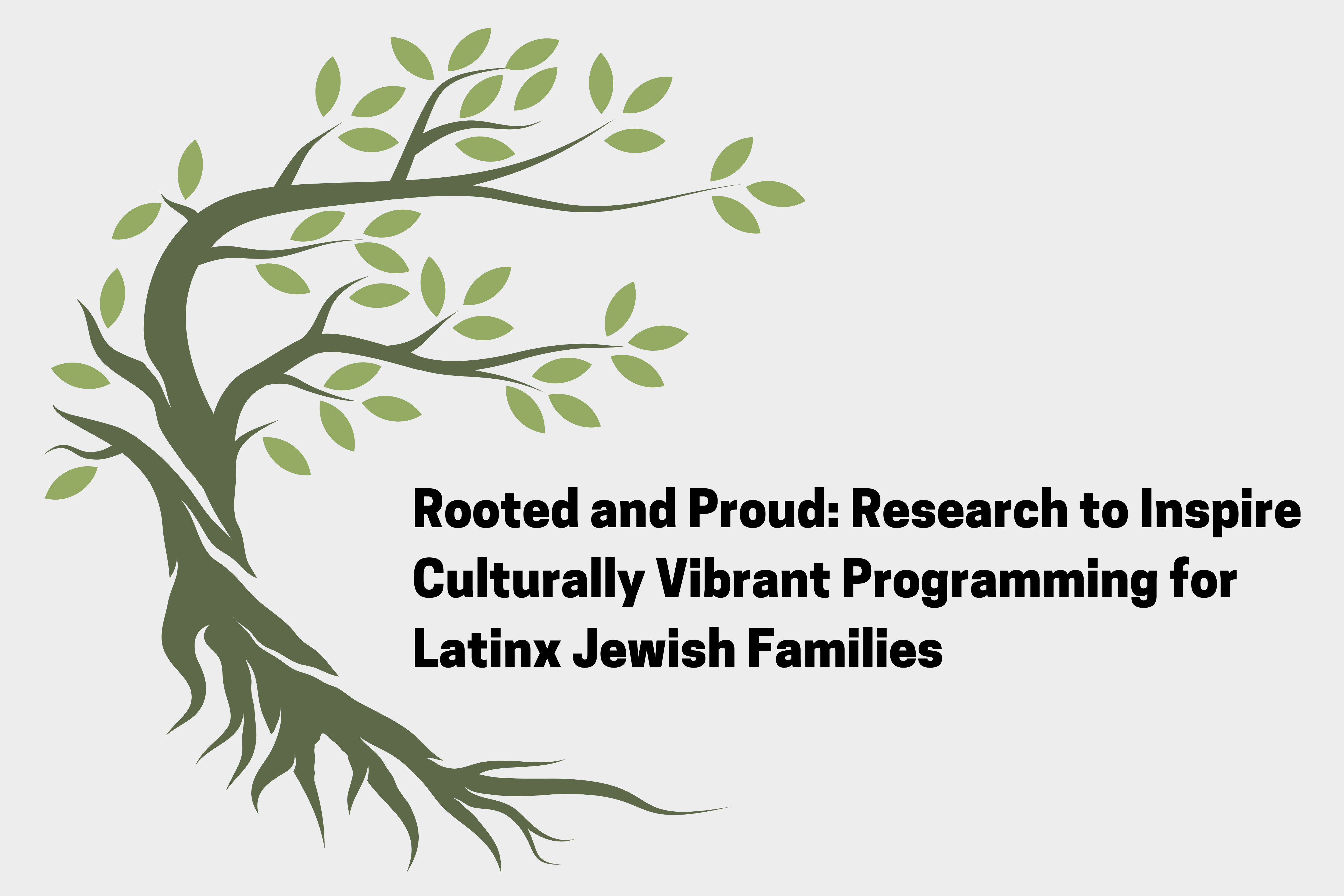
The San Francisco Bay Area has a vibrant and active Jewish community with a variety of programming and educational opportunities. However, these options are not always offered in ways that meet the intersectional needs and interests of multicultural, multilingual families. Ariela Ronay-Jinich found herself navigating these waters, having to choose between Jewish education or Spanish-language education for her children. This dilemma spurred her to create Olamim, a research and community engagement initiative focused on Latinx Jewish families in the Bay Area.
Olamim, the Hebrew word for “worlds,” aims to advance knowledge and inspire programming that centers Latinx Jewish families in all their dimensions. “As an educator, community activist, program developer, and mother,” said Ronay-Jinich, “understanding families and their experiences around identity, community, and belonging is the only way to design and deliver programs that not only attempt to meet people’s needs but actually engage people’s strengths as culturally vibrant people who best understand their own family’s changing needs.”
Ronay-Jinich realized that through harnessing her research skills, she could increase the programmatic and educational offerings designed for Latinx Jewish families. And she didn’t wait to start making a tangible impact. Ronay-Jinich began networking and building a community of Latinx Jewish families in the Bay Area who held play-based gatherings for their young children. As these families developed relationships with each other, Ronay-Jinich recognized that she needed to speak directly with other community members in order to make the Jewish community more inclusive. With research funding from the JoCI, Ronay-Jinich interviewed several mothers of young children to explore how they navigate educational choices for their children within a system that bifurcates Jewish and Latinx communities.
As Ronay-Jinich dove deeper into existing research in this area, she saw how her efforts could have multiple levels of impact. “My literature review focused largely on heritage language and culture learning among Latinx folks in the United States and invited me to think about how Olamim’s language and culture-based programs can make an impact not just within the Jewish community but also the Latin/Spanish-speaking community in general.”
“For many Latin Jewish families, parents notice how it feels to be Jewish in Latinx spaces and Latinx in Jewish spaces – meaning that we notice how dominant cultures, privilege and positionality all play a role in our experiences in these communities. Add to that race, class, and gender and you get some complex, intersectional experiences,” Ronay-Jinich said. She emphasized that Jewish community-builders could begin by building their understanding of these experiences and allowing that understanding to inform the work they do.
On February 16, 2023, Ronay-Jinich shared her findings in a presentation titled “Latinx Jewish Families: Navigating Identity, Learning, and Community,” alongside two experts in the field, Dr. Analucia Lopezrevoredo of Jewtina y Co., and Dr. Priya Mariana Driscoll of Mills College at Northeastern University. The virtual gathering had over 80 attendees and centered the concepts of cultural continuity and communal transformation.
“We hope we are creating a new generation of truly rooted and proud children,” said Dr. Lopezrevoredo, who provided extensive background and demographic information as the context for Ronay-Jinich’s discussion of the study‘s findings. One fact Dr. Lopezrevoredo shared is that 95% of Latinxs believe it is important for future generations to speak Spanish in order to preserve culture and identity. This is of central importance to Ronay-Jinich’s research; she hopes her findings will help generate new models of Jewish learning that are relevant and responsive to Latinx Jews and other multiethnic Jews. She would like to see Jewish institutions include language-based options, such as a Spanish-language Jewish preschool or pod within a summer camp, and make multilingualism and multiculturalism normative. These options would eliminate the pressure on multicultural families to prioritize or choose one identity rather than engage their full selves.
Reflecting on the event, Ronay-Jinich said, “It was especially powerful to present alongside Analucia and Priya because we are all Latina women with such different experiences and each possess such a unique wealth of understanding of the communities we are each a part of and advocate for. We actually had a very emotional moment during our technical rehearsal, before the presentation, as we shared how moving these themes are to us as mothers who have been deeply involved in navigating culture, identity, and belonging within our families.”
Although the research process is complete, its impact is far from over. Ronay-Jinich hopes the findings of this study will inspire communities to continue to offer and expand support to multi-ethnic Jewish families and communities, creating a community of inclusion and multiculturalism for future generations.
Through her research, Ronay-Jinich developed several recommendations for the Jewish community:
- Consider cultural and linguistic relevance for families
- Explore programming models that center intersectional identities
- Support families in developing social networks that increase cultural resources
- Support adults in affirming their ethnic identities
- Acknowledge and value families as the locus of cultural continuity
- Cross the intercultural bridges offered
Ronay-Jinich is proud to contribute to broader efforts toward justice. “My hope is that this study can sit within and serve that bigger body of work of moving us all toward greater justice, equity, and inclusion.”
Olamim and Jewtina y Co. invite Latinx Jewish families and any families raising children with multiple cultural heritages and languages to join them for their Latin Jewish Festival on April 30, 2023. Learn more and purchase tickets.
